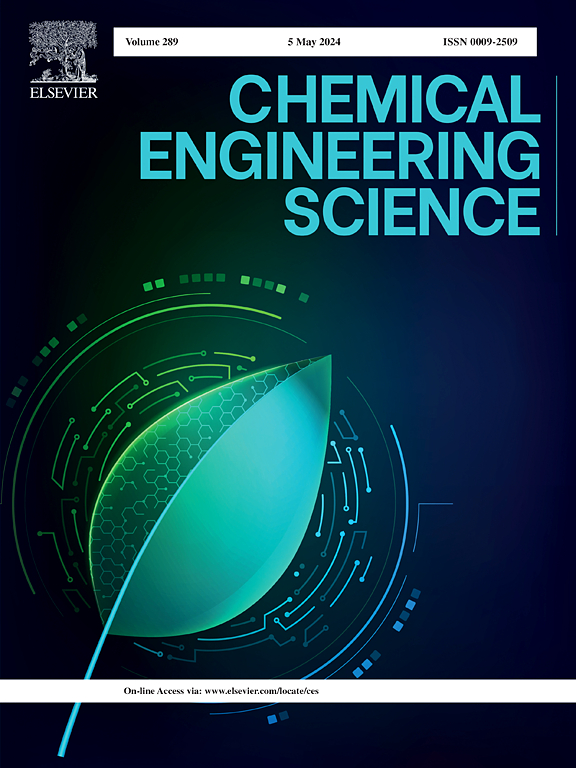Dynamics of bubble rising in extremely high and low viscous fluids
IF 4.1
2区 工程技术
Q2 ENGINEERING, CHEMICAL
引用次数: 0
Abstract
Bubble dynamics is a captivating field of study due to its complexity and wide-ranging applications. The present research focuses on bubble behavior in fluids with very high and low viscosities. Our study also focuses on understanding the effect of gas flow rate and needle diameter on bubble size. This research is essential because of scientific disagreement in this area, and our revisit adds new findings to the problem. We perform experiments in liquids with extreme viscosity differences using needles ranging from 0.84 mm to 1.54 mm and gas flow rates from 5 ml/min to 80 ml/min. In low-viscosity fluid, bubble necking time is constant with the flow rate, and secondary necking leads to daughter bubble formation. In high-viscosity fluid, bubble formation and rising differ, with smaller bubbles sliding over larger ones and merging symmetrically along their axis. The symmetry of contact decides sliding or coalescence. We also noticed that bubbles formed pairs (doublets) when the gas flow rate decreased with increasing needle size. The consecutive bubble diameter in both fluids is explored. The contrasting characteristics in low-viscosity environments (such as deionized water) and high-viscosity environments (like glycerol) highlight their respective monotonic and non-uniform flow behaviors.
极高和极低粘度流体中的气泡上升动力学
由于其复杂性和广泛的应用,气泡动力学是一个引人入胜的研究领域。本研究的重点是高粘度和低粘度流体中的气泡行为。我们的研究还侧重于了解气体流速和针头直径对气泡大小的影响。这项研究非常重要,因为在这一领域存在科学分歧,而我们的重新审视为这一问题增添了新的发现。我们在粘度差异极大的液体中进行了实验,使用的针直径从 0.84 毫米到 1.54 毫米不等,气体流速从 5 毫升/分钟到 80 毫升/分钟不等。在低粘度液体中,气泡缩颈时间与流速恒定,二次缩颈导致子气泡形成。在高粘度流体中,气泡的形成和上升有所不同,较小的气泡在较大的气泡上滑动,并沿其轴线对称地合并。接触的对称性决定了是滑动还是凝聚。我们还注意到,当气体流速随针头尺寸增大而降低时,气泡会形成对(双)。我们对两种流体中的连续气泡直径进行了探讨。低粘度环境(如去离子水)和高粘度环境(如甘油)中的对比特征突出了它们各自的单调和非均匀流动行为。
本文章由计算机程序翻译,如有差异,请以英文原文为准。
求助全文
约1分钟内获得全文
求助全文
来源期刊

Chemical Engineering Science
工程技术-工程:化工
CiteScore
7.50
自引率
8.50%
发文量
1025
审稿时长
50 days
期刊介绍:
Chemical engineering enables the transformation of natural resources and energy into useful products for society. It draws on and applies natural sciences, mathematics and economics, and has developed fundamental engineering science that underpins the discipline.
Chemical Engineering Science (CES) has been publishing papers on the fundamentals of chemical engineering since 1951. CES is the platform where the most significant advances in the discipline have ever since been published. Chemical Engineering Science has accompanied and sustained chemical engineering through its development into the vibrant and broad scientific discipline it is today.
 求助内容:
求助内容: 应助结果提醒方式:
应助结果提醒方式:


